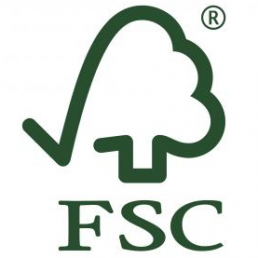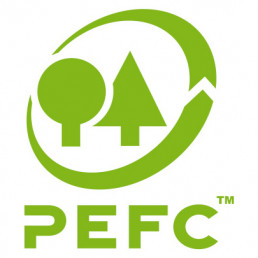The sustainable business case
Unlike most other materials, wood is not at risk of becoming depleted. Like generations before us, we can continue utilizing wood from responsibly managed plantations without compromising opportunities for future generations. Forests not only “inhale” CO2 and regulate climate (SDG 13), they also provide essential services such as clean water, biodiversity, and healthy soils (SDG 15). They are home to the majority of the world’s terrestrial biodiversity and provide economic and livelihoods services such as timber for production of goods, household appliances, and fuel to billions of people globally, many of whom are among the poorest in the world (SDG 1, 2, 7, 15). These goods and services are vital for our existence and demand of such is expected to increase dramatically due to population growth and rise in the global consumption of wood-based panels per capita and ecosystem concerns.
By investing into sustainably managed forests, we can maintain and restore the productive and protective capacity of landscapes, while at the same time addressing the manifold challenges that we are facing – all in alignment with the United Nations’ Sustainable Development Goals (“SGDs”).
Here, it is important that we do not forget about agriculture as this industry, too, has a crucial role to play in achieving a greener tomorrow. Sustainable agriculture impact areas are embedded within broader ESG themes that investors often have to take into account – e.g. combatting climate change, achieving food security, ensuring water availability – and which have a direct impact on people and places.
Sustainable land use creates a cascade of additional benefits to society:
Investment strategies
Forest investment strategies are diverse and comprise different opportunities for climate, ecosystems, and investors. Forest landscape restoration, scaling up existing sustainably managed plantations, and conservation forestry management all have one common feature – the aim to balance economic, social, and ecological functions for the longer term, albeit at a different rate and return expectations. It is broadly recognized that tackling climate change and achieving the SDGs could unlock trillions of dollars in new investment opportunities and markets, along with millions of new jobs by 2030. This is a strong business case that is already attracting long-sighted capital and investors willing to speed up the transition to a low-carbon economy.
Adding value
Decades of research have demonstrated the many risks and opportunities posed by environmental, social, and governance (“ESG”) matters in connection with the performance of a financial asset; effects that traditional financial indicators often cannot detect. Through a solid ESG framework and nearly three decades of investment activity in sustainable natural resources, IWC and our clients are actively contributing to the global transition towards a more sustainable tomorrow.
Our investment principles for sustainably managed natural resources effectively help counter some of today’s most talked about issues of climate change, deforestation, and biodiversity loss. At IWC, we pride ourselves on being at the forefront of the market and are always on the lookout for new sustainable investment opportunities for our clients. We believe that this constant readiness to adapt holds the key to the long and robust relationships we have with our clients.
Thanks to our clients’ trust, we are able to achieve important sustainable outcomes, which can be found in our ESG Report.
Sustainability integration at IWC
An adequate and continuously evolving ESG investment framework
During our three decades of experience, we have seen time and time again the effects that ESG matters can have on an investment performance and the positive impact that responsible investment principles can have on the broader society. The IWC Group thus seeks to carry out all investments in a manner that is socially responsible and environmentally sound, based on a rigorous ESG framework, integrated throughout an investment lifecycle (due diligence, investment decision/advice, holding and exit). ESG matters are incorporated in relevant policies and procedures, distinguishing between different markets, types of investment, and level of control. IWC’s core principles and values are described in our ESG Policy, supplemented by Forest Certification Policy (when it comes to forestry investments), among others, and inspired by accredited international principles, guidelines, and standards. Some of these are the International Finance Corporation’s Performance Standards on Social and Environmental Sustainability, the Organization for Economic Development and Cooperation’s Guidelines for Multinational Enterprises, the United Nations Global Compact’s 10 Principles, the United Nations Guiding Principles on Business and Human Rights, the Recommendations of the Task Force on Climate-related Financial Disclosures, etc.
We integrate climate-related risk and opportunities into our investment analysis. We also aim at attaining the most appropriate, recognized third-party forest certification for our forest investments and forestry activities under our advice or management (FSC, PEFC, or other schemes on par with these). At year-end 2019, 98% of all forestry assets under management or advice were certified or in the process of becoming so.
Agriculture investments are currently only made in Europe and abide to the rigorous European laws and regulations, emphasizing on human rights, environmental protection, and sustainable resources management. Still, IWC focus on land and resource rights, local expertise, and environmental risks, as well as climate-related factors during our investment analysis and decision processes.
For regulatory reasons, the IWC Group carries out its main activities through (i) International Woodland Company ApS providing investment management, forestry and agriculture advisory services regarding its clients’ timberland and agriculture investment strategies and the implementation thereof, and (ii) IWC Investment Partners A/S (“IWC IP”) providing timberland investment management, investment advice, and discretionary portfolio management regarding financial instruments to professional investors. As an alternative investment fund manager (“AIFM”), IWC IP is subject to the EU Regulation 2019/2088 on sustainability-related disclosures in the financial services sector (SFDR). In addition to the above sustainability-related policies and risks, please refer to the sustainability-related disclosure webpage.
Our commitments and memberships



